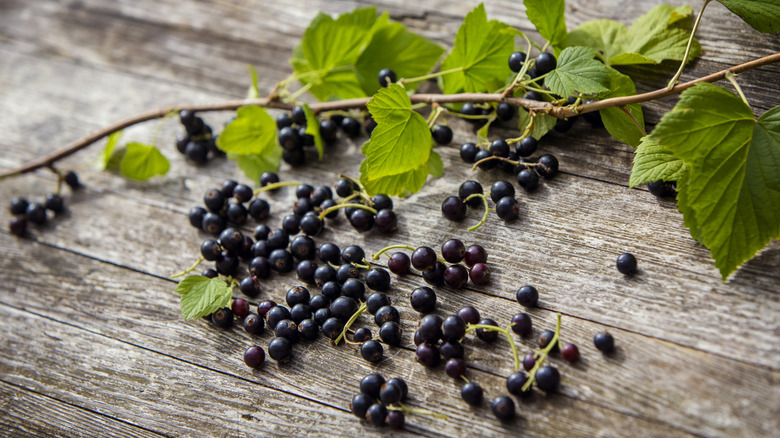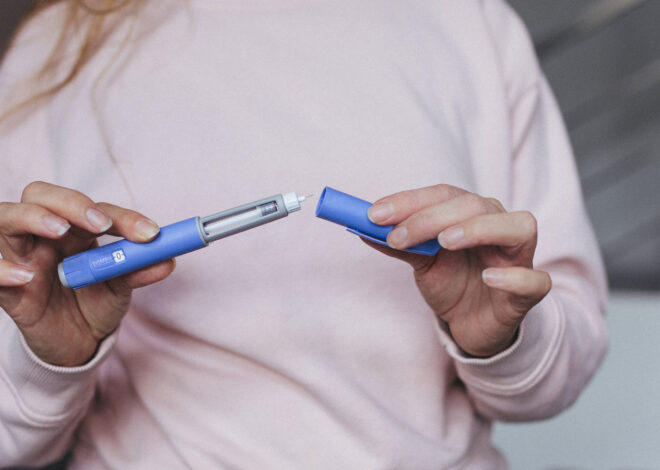
An Underrated Fruit High In Vitamin C May Prevent Diabetes, Heart Disease, And Cancer – Health Digest
Fruits have taken a hit in popularity lately, mostly because some trendy diets shy away from their naturally occurring sugars. But when it comes to getting vitamin C, fruit is hard to beat. Vitamin C is best known for its antioxidant powers to help your body fight off damage from free radicals. Your immune system loves the extra support of vitamin C, and vitamin C also plays a key role in making collagen, which helps your body heal wounds.
One of the top sources of vitamin C is blackcurrants (or black currants). Just one cup packs more than twice the recommended daily amount of vitamin C, putting them in the top 10 for vitamin C content. They’re also a decent source of iron, and vitamin C helps your body absorb that iron more effectively. On top of that, blackcurrants offer potassium, which helps manage blood pressure, and vitamin B5 to help convert food into energy.
Blackcurrants are loaded with plant-based nutrients that give an extra boost to vitamin C’s antioxidant effects and help lower inflammation — a key player in many chronic diseases. Their deep, rich color comes from anthocyanins, compounds that may help regulate blood sugar, improve heart health, and reduce cancer risk, according to a 2019 review in the Journal of Food Science.
Blackcurrant extract has powerful antioxidants
GLP-1 medications are usually prescribed to help control blood sugar and support weight loss, but a 2018 study in the Journal of Nutritional Science and Vitaminology found that the anthocyanins in blackcurrant extract might have a similar effect. In the study, diabetic mice were given blackcurrant extract, and researchers found it boosted the GLP-1 hormone, which helps regulate blood sugar. On top of that, the extract helped their bodies use sugar more efficiently by moving it into the muscles.
Blackcurrant extract may also help lower cholesterol. Anthocyanins can block some cholesterol from being absorbed in the intestines, while other plant-based compounds in the extract may slow down how much cholesterol the liver produces. In a 2021 study in Molecules, a small group of healthy women took blackcurrant extract daily for 29 days. By the end of the study, their total cholesterol and LDL (“bad”) cholesterol had dropped significantly.
(Read: Can you get too many antioxidants?)
Your body needs antioxidants to fight off free radicals that can damage DNA and may lead to cancer. According to a 2012 study in the Journal of Functional Foods, the antioxidants in blackcurrant extract may help slow the growth of certain cancer cells. The researchers found that its anthocyanins neutralized free radicals and slowed the growth of stomach cancer cells. Even more promising, the extract helped trigger the death of those cancer cells.
Blackcurrant juice may help your mood and exercise performance
While much of the research on blackcurrants focuses on extracts, some studies have looked specifically at blackcurrant juice. A 2020 study in Nutritional Neuroscience used juice made from New Zealand blackcurrants containing 500 milligrams of powerful polyphenols. A single serving of this juice temporarily blocked the enzyme monoamine oxidase B (MAO-B), which breaks down neurotransmitters that support mood, motivation, attention, and brain function. MAO-B inhibitors are known to boost dopamine levels and are even used to treat symptoms of Parkinson’s disease (per the Parkinson’s Foundation).
If you’re into intense workouts, you might want to add blackcurrant nectar to your routine. A 2016 study in the Journal of Dietary Supplements found that it could help reduce inflammation and protect your muscles. In the study, one group of students drank 16 ounces of blackcurrant nectar twice a day for eight days, while another group had a placebo. On the fourth day, they all went through a brutal leg workout. Although both groups felt sore afterward, the blackcurrant group had lower levels of creatine kinase, a marker of muscle damage. They also showed less inflammation and higher antioxidant levels.





